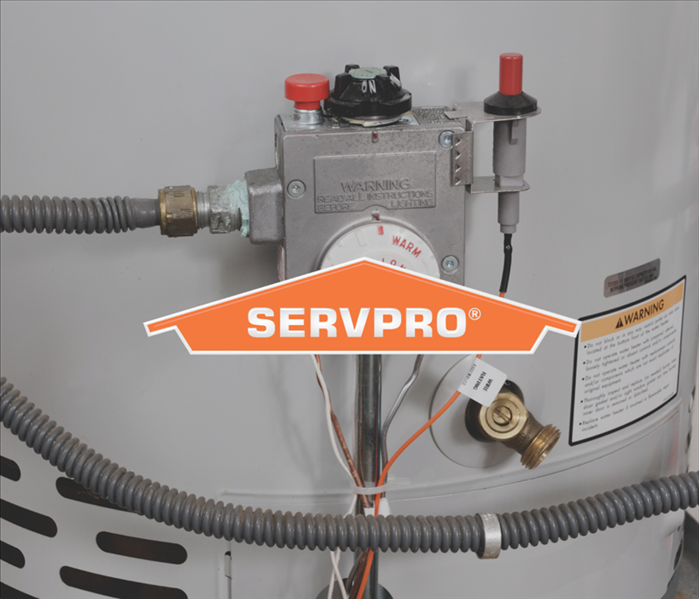3 Ways Your Water Heater Can Malfunction And What You Can Do To Prevent Them
4/10/2020 (Permalink)
Water heater malfunctions are one of the five most common sources of residential water damage. According to the Insurance Institute for Business and Home Safety (IBHS), this disaster leads to an average of $4,444 per incident after the deductible is paid.
That is a scary thought, isn’t it? Don’t worry! We are going to tell you 3 things to watch out for and ways you can prevent this from happening in your home!
3 Things to watch for:
- Sediment Build-Up:
Over time minerals from hard water settle at the bottom of the water heaters tank. What this does is insulate the water from the burner, making it run longer to heat your water which can cause your water heater to overheat and deteriorate the tank.
How do I know if I have this problem?
Glad you asked! If you hear your water heater making a popping or knocking noise that means water is trapped under the sediment and is trying to escape. Imagine boiling water pushing on the lid of the pot trying to boil over.
How do I prevent this from happening?
Preventing this from happening is pretty simple. All you have to do is flush and drain the tank of sediment once a year!
- Rust Corroding the tank:
Water heaters are made of steel which is mostly iron… meaning that over time the water in the tank will cause it to rust. There is a 3-5-foot rod inside of it to protect from rust. They call this rod a “sacrificial” anode rod. The name is quite fitting because the purpose of the rod is to rust before the tank does, once this rod deteriorates, your water heater will begin rusting shortly after.
How do I know if I have this problem?
The signs of this problem are very easy to spot. If your tap water is a brown, rusty color you know you have rust in your water heaters tank.
How do I prevent this from happening?
Inspect the rod once every two years. It’s not a bad idea to check at least annually after your warranty expires. You will more than likely change the rod once every 4-5 years at least.
- Too Much Internal Pressure:
Imagine blowing up a balloon. What happens when you put too much air in the balloon? It POPS! Water heaters have the same concept. If too much pressure builds in the tank eventually, it will spring a leak and burst. If the pressure gets too bad, the tank can actually explode causing even more damage. Thankfully, your water heater manufactures put in a temperature and pressure valve to prevent that from happening!
What this valve does is open up to release some of the water, keeping the pressure down. Even with the valve extra pressure can cause your tank to wear down over the years.
How do I know if I have this problem?
You will know this is becoming a problem if your temperature and pressure valve keeps opening to release water.
How do I prevent this from happening?
Pressure builds when you set the temperature too high. Make sure your water heaters' temperature is around 120-125 degrees. Any higher than that and you will increase the pressure in the tank as well and increase your chances of getting burned by the water. OUCH!
If you are the kind of person who likes to do it yourself, you can certainly do the maintenance but it’s easy to forget! The best way to prevent your water heater from malfunctioning is to hire a plumber to perform maintenance once a year. You will get the peace of mind you need without having to worry if you forgot to check something or if you did it correctly. Let the pros take care of you!


 24/7 Emergency Service
24/7 Emergency Service
